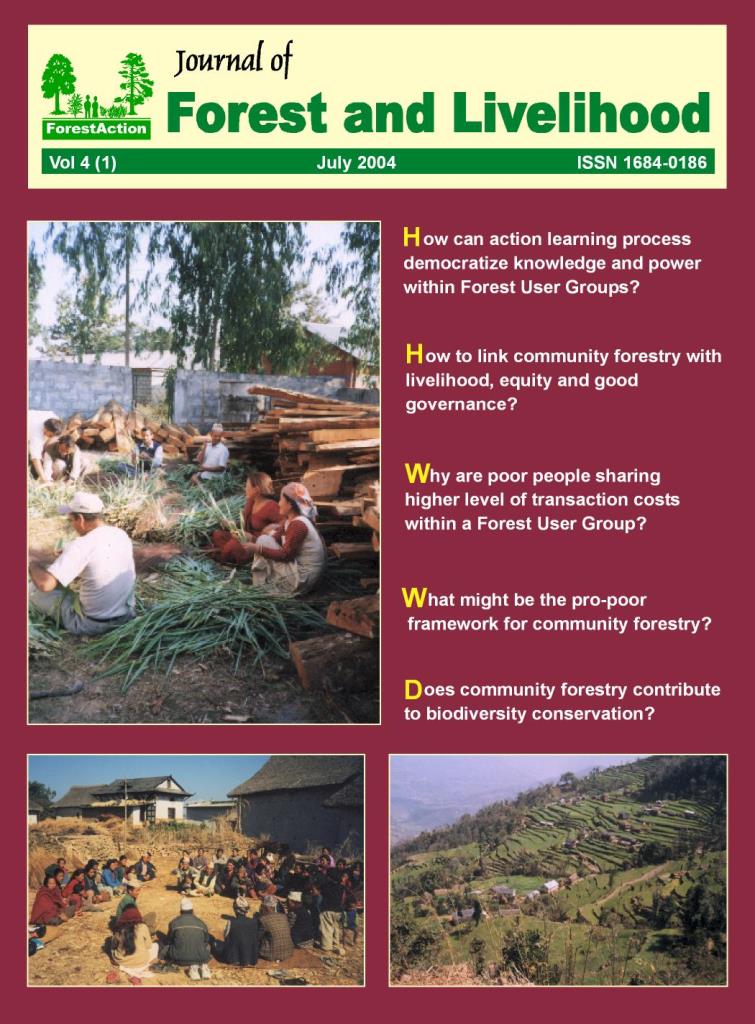Transaction Costs and Common Property Forest Management: Empirical Evidence from Nepal
DOI:
https://doi.org/10.3126/jfl.v4i1.59769Keywords:
Transaction cost, common property, forest management, stakeholders, decision making-equity, decision-making equityAbstract
Transaction costs are an important determinant in the success or failure of community-based resource management. In particular, they can affect participation in management activities, with the poor bearing a proportionally larger share of the costs. Analysis of 309 households from the Middle-Hills of Nepal reveals that transaction costs for communal forest management as a percentage of total costs are higher for poorer households (14%) than those for middle-wealth (12%) or rich households (9%). Whilst transfer of forest management responsibility to the community may lower transaction costs incurred by the state, these costs may be unequally distributed among stakeholders. This paper argues that an adequate theory of forest use should incorporate the role of institutional structures associated with different forest regimes and their associated transaction costs.
Downloads
Downloads
Published
How to Cite
Issue
Section
License

This work is licensed under a Creative Commons Attribution-NonCommercial 4.0 International License.
CC-BY-NC: This license allows reusers to distribute, remix, adapt, and build upon the material in any medium or format for noncommercial purposes only, and only so long as attribution is given to the creator.





